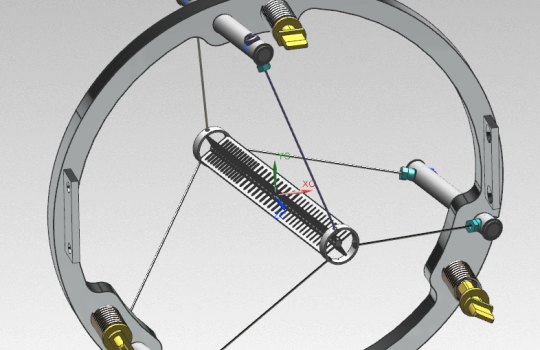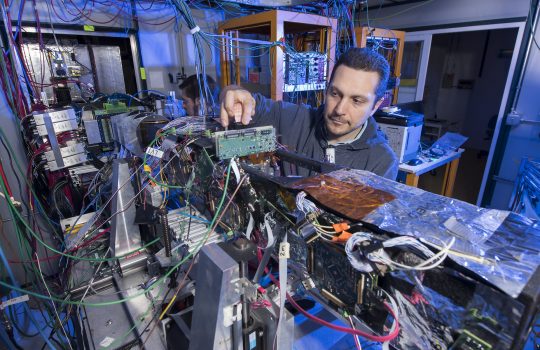Our universe’s first seconds
From In the Moment, Oct. 31, 2019: In this 42-minute podcast, Fermilab scientist Dan Hooper talks about particles, relativity and the origins of our universe, outlining our growing understanding of the conditions in which our universe began, highlighting what we know about the first few seconds after the Big Bang and how several astronomers and mathematicians throughout history helped us determine that the universe was expanding.



